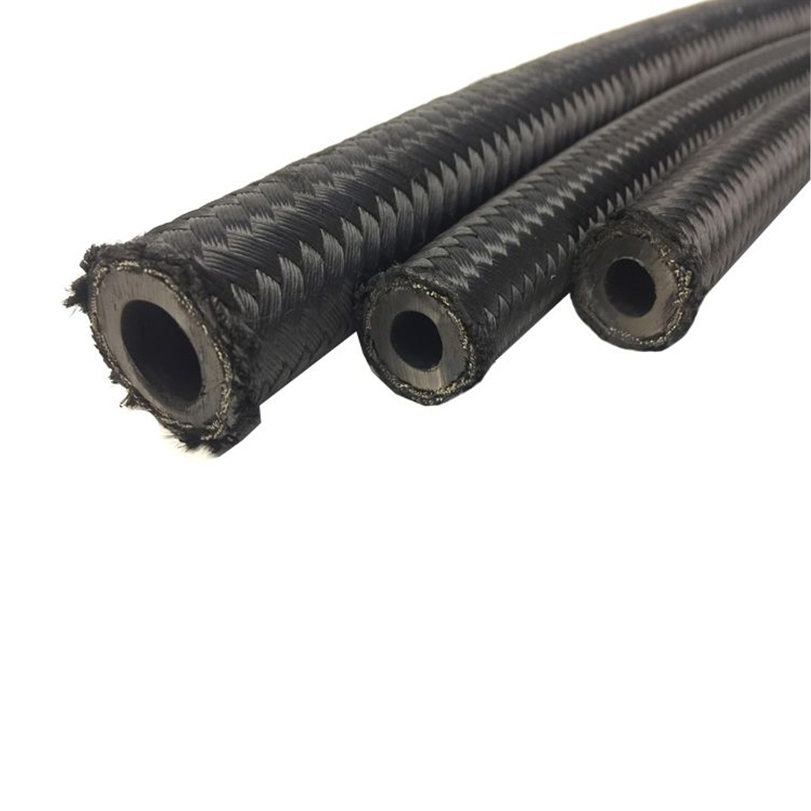335345435
Nov . 20, 2024 09:50 Back to list
flexible ptfe hose
The Versatility of Flexible PTFE Hose A Comprehensive Overview
In the world of industrial applications, the choice of materials is critical to ensuring efficiency, safety, and longevity. One such material that has gained significant attention is polytetrafluoroethylene (PTFE), a synthetic fluoropolymer known for its unique properties. Flexible PTFE hoses, in particular, have become an essential component in various sectors due to their versatility and durability.
What is Flexible PTFE Hose?
Flexible PTFE hose is a type of tubing made from polytetrafluoroethylene that is designed to be both flexible and resistant to a wide range of chemicals and high temperatures. The hose typically features a smooth inner surface that minimizes friction and maximizes flow, making it an ideal choice for transferring fluids. The outer layer often consists of a reinforcement material, such as stainless steel or polyester, which provides additional strength and protection against environmental factors.
Key Properties of Flexible PTFE Hose
1. Chemical Resistance One of the primary advantages of PTFE is its exceptional chemical resistance. It can withstand exposure to a wide range of aggressive chemicals, including acids, alkalis, and solvents. This property makes flexible PTFE hoses suitable for industries such as pharmaceuticals, petrochemicals, and food processing, where handling corrosive substances is often required.
2. Temperature Tolerance Flexible PTFE hoses can operate in extreme temperature ranges, typically from -70°F to 500°F (-57°C to 260°C). This capability allows them to be used in various applications, from cryogenic environments to high-temperature processing systems, without compromising their structural integrity.
3. Low Friction Coefficient PTFE is known for its low friction properties. As a result, flexible PTFE hoses provide smooth and efficient fluid flow, minimizing pressure drops and energy consumption. This characteristic is particularly beneficial in applications where the efficient transfer of fluids is critical.
4. Non-stick Surface The non-stick nature of PTFE means that substances are less likely to adhere to the hose's interior surfaces. This feature not only enhances the cleaning process but also reduces the risk of contamination in sensitive applications, such as food and beverage production.
Applications of Flexible PTFE Hose
flexible ptfe hose

Flexible PTFE hoses are utilized in a myriad of applications across different industries. Some notable uses include
- Chemical Transfer Due to their chemical resistance, these hoses are often employed in the transfer of hazardous and corrosive chemicals in manufacturing and laboratory settings.
- Pharmaceuticals In the pharmaceutical industry, maintaining the purity of materials is paramount. Flexible PTFE hoses ensure that the processes remain contamination-free, making them ideal for the transfer of active ingredients and other sensitive substances.
- Food and Beverage The non-stick and sanitary properties of PTFE make flexible hoses suitable for food processing applications. They comply with FDA regulations, ensuring safe transportation of consumables.
- Aerospace The aerospace industry demands high-performance materials capable of withstanding harsh conditions. Flexible PTFE hoses are used in fuel lines, hydraulic systems, and other critical components, ensuring reliability under extreme temperatures and pressures.
Installation and Maintenance Considerations
While flexible PTFE hoses are robust and durable, proper installation and maintenance are crucial to maximizing their lifespan. It is essential to ensure that the hoses are installed without sharp bends or kinks that might restrict flow or cause damage. Regular inspections for signs of wear or chemical degradation should be conducted, especially in high-stress applications.
Conclusion
In conclusion, flexible PTFE hoses stand out as a remarkable solution for a wide range of industrial applications. Their chemical resistance, temperature tolerance, low friction, and non-stick properties make them indispensable across various sectors, including pharmaceuticals, food and beverage, and aerospace. As industries continue to evolve and demand more from their materials, the role of flexible PTFE hoses is likely to expand, bringing innovation and efficiency to processes worldwide. Adopting this versatile solution can lead to improved operational efficiency and safety, contributing to the overall success of industrial operations.
-
SAE 100 R17 Black Smooth Cover Hydraulic Hose
NewsMar.07,2025
-
SAE 100 R17 Black Smooth Cover Hydraulic Hose
NewsMar.07,2025
-
SAE 100 R17 Black Smooth Cover Hydraulic Hose
NewsMar.07,2025
-
SAE 100 R17 Black Smooth Cover Hydraulic Hose
NewsMar.07,2025
-
SAE 100 R17 Black Smooth Cover Hydraulic Hose
NewsMar.07,2025
-
steel wire braided hydraulic hose
NewsMar.07,2025



